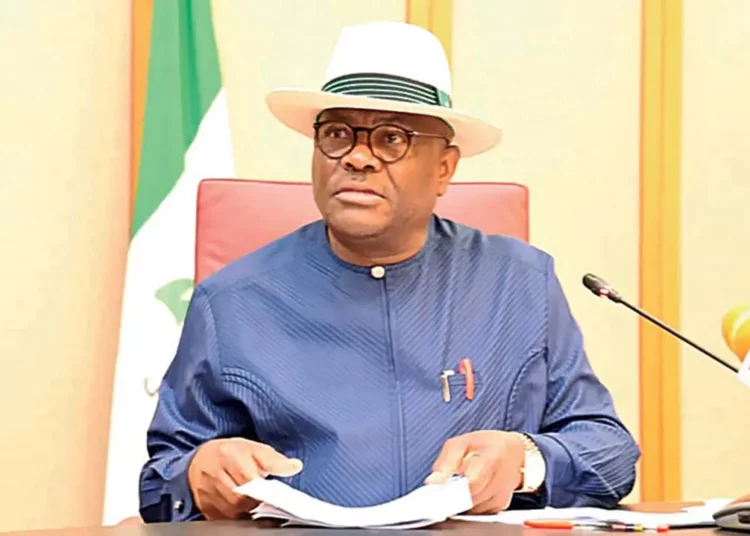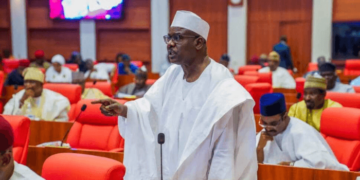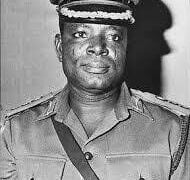Minister of the Federal Capital Territory (FCT), Barr Nyesom Wike, has said his administration will work with the Association of Pediatric Surgeons of Nigeria (APSON) to improve expand their services to more Nigerians.
Wike, who was represented by the minister of state for FCT, Dr. Mariya Mahmud Bunkure, made the pledge, at the opening of the 24th annual general meeting and scientific conference of APSON, yesterday in Abuja
The minister’s pledge came just as Prof. Philip Mshelbwala, made a disclosure that the Federal Capital Territory (FCT) and neighbouring Nasarawa State have only 15 paediatric surgeons for a combined population of approximately 4.3 million, with over 2.2 million of the aforementioned population as children.
Mshelbwala, who is the chairman of the Local Organising Committee (LOC) of the event maintained that the dearth of paediatric surgeons in both the FCT and Nasarawa State fell, which is a sobering reality of the situation across the country, falling below World Health Organisation (WHO) recommendations.
The minister acknowledged that the healthcare sector faces daily challenges such as limited infrastructure, inadequate manpower, rising costs of care, and the migration of skilled professionals.
He assured that the FCT administration is keen on expanding access to quality healthcare, improving referral systems, and ensuring that children in both urban and rural areas can benefit from timely and effective surgical interventions.
Wike commended APSONfor its continued dedication to training, research, and mentorship, adding that the future of medicine in Nigeria rests heavily on how well they prepare the next generation of doctors and surgeons.
He said, “As a family physician, I must also emphasize the importance of preventive care.
While paediatric surgery addresses life-threatening conditions, prevention and early detection remain vital. Stronger linkages between paediatric surgeons, family physicians, general practitioners, community physicians, and other public health experts can significantly reduce late presentations and improve surgical outcomes for children.”
Earlier, Mshelbwala while stressing the need for urgent action to address the challenge, expressed optimism that over the coming days, the rich exchange of scientific information, innovative surgical techniques, and invaluable clinical experiences will enhance the collective expertise of participants drawn from across the country to ultimately improve outcomes for the children in the country.
“This congress represents more than just a professional meeting; it is a beacon of hope for the future of paediatric surgery in Nigeria. The induction of new paediatric surgeons into our fold during the conference is a testament to this,” the University of Abuja don noted.
“As we embark on this scientific journey together, I am confident that our deliberations will project the image of a robust and vibrant association, one that stands ready to tackle the challenges facing paediatric surgery in Nigeria while fostering innovation and excellence.”
In his keynote address, Dr. Paul Manya Dogo, emphasized the need to “prioritize children’s surgery in Nigeria’s Health Sector Strategic Blueprint as Nigeria currently faces significant healthcare challenges, including a shortage of doctors, with only 23.3 doctors per 100,000 people, far below the World Health Organization’s recommended 100 doctors per 100,000”. He further mentioned “lack functional equipment, with 50% of X-ray machines in government hospitals not working.
“The inclusion of children’s surgery in the National Health Sector Strategic Blueprint will also ensure domestic funding and implementation at the subnational level. With sustained advocacy to development partners, the Federal Ministry of Health, and state governments through the Nigeria Governors’ Forum can facilitate the realisation of this noble goal, a step towards improving healthcare outcomes for its young population and aligning with global health goals “
The Permanent Secretary, Ministry of Steel Development, Dr. Chris Isokpunwu, who chaired the opening ceremony noted that paediatric occupies a critical position in medical care. He however, explained that paediatric was challenged by manpower shortage and infrastructure.
To chart a way forward, Isokpunwu tasked APSON with prioritising the training of young surgeons and continuing advocacy for infrastructure and financing that will make paediatrics affordable.





